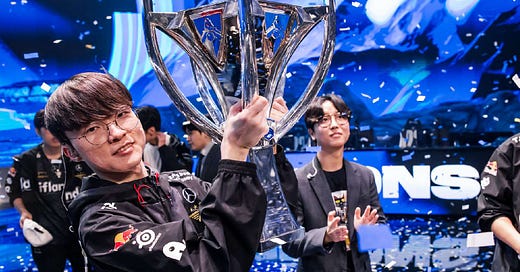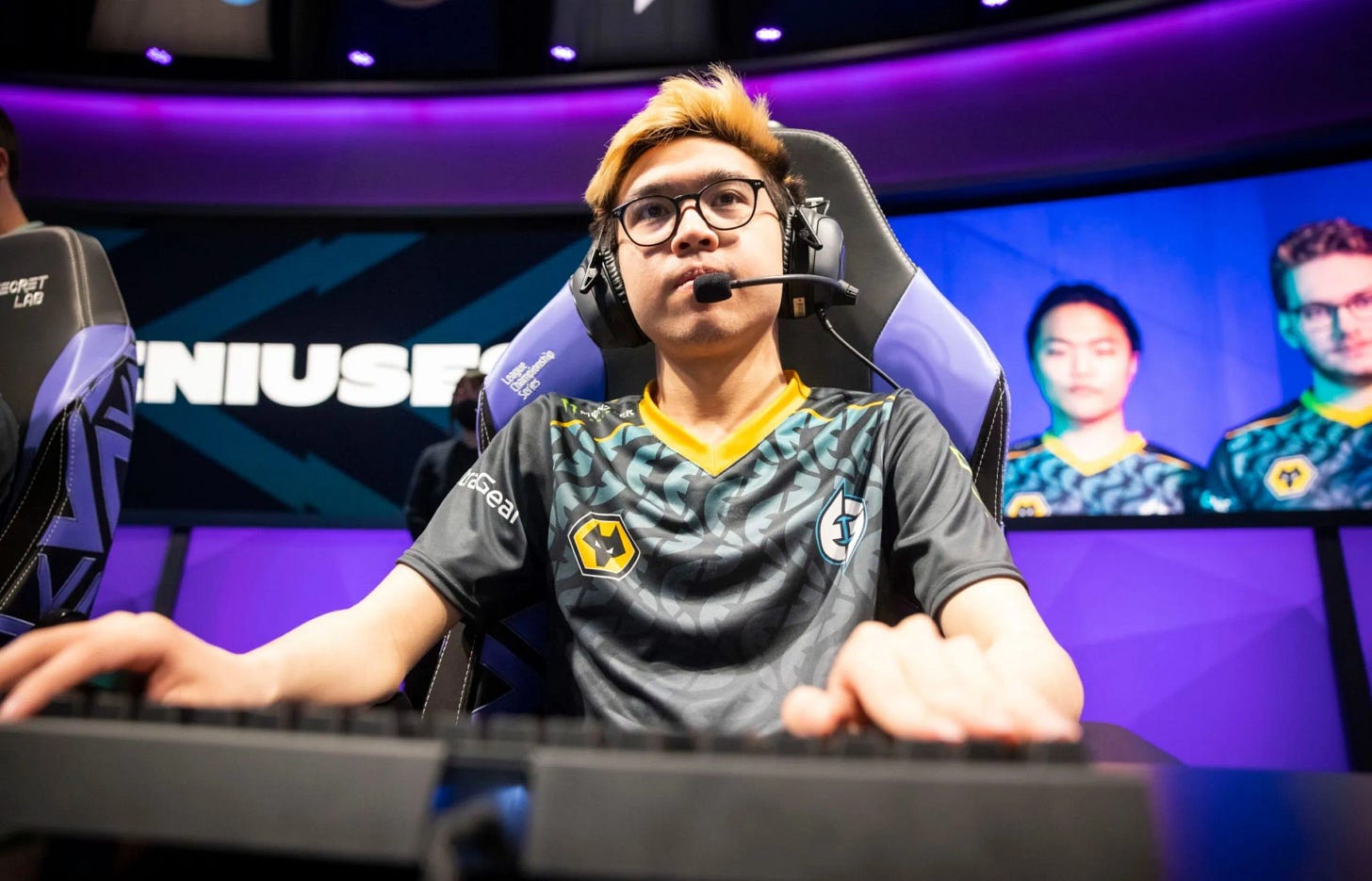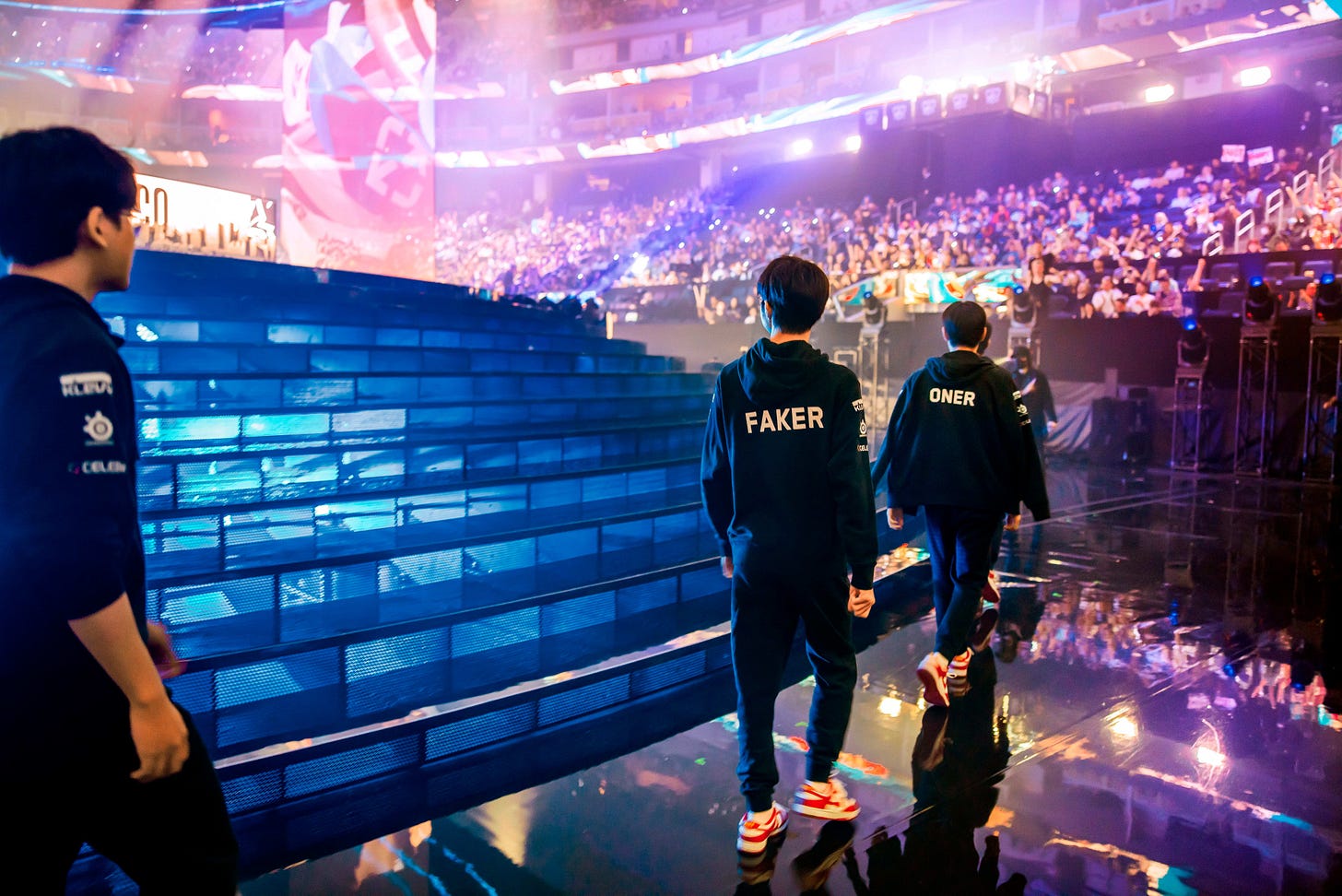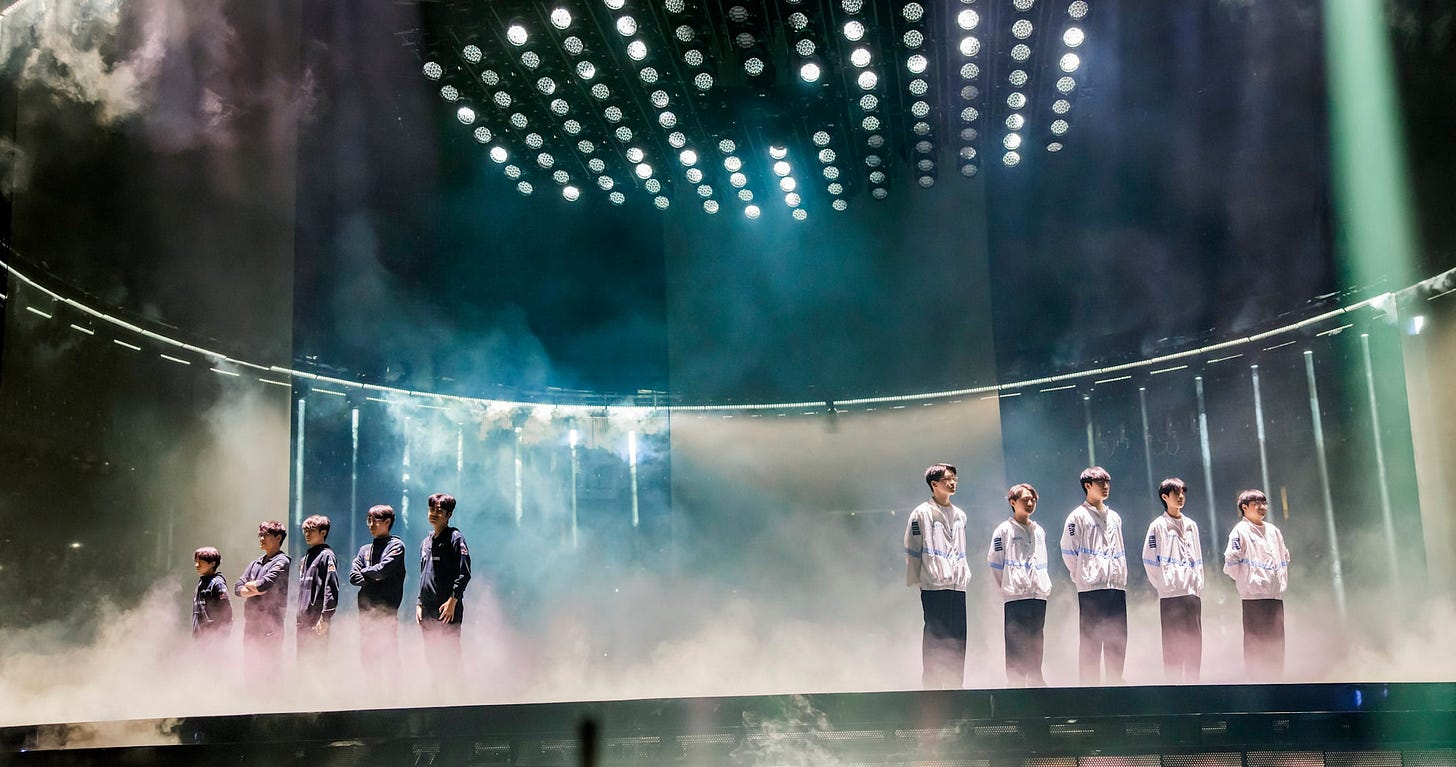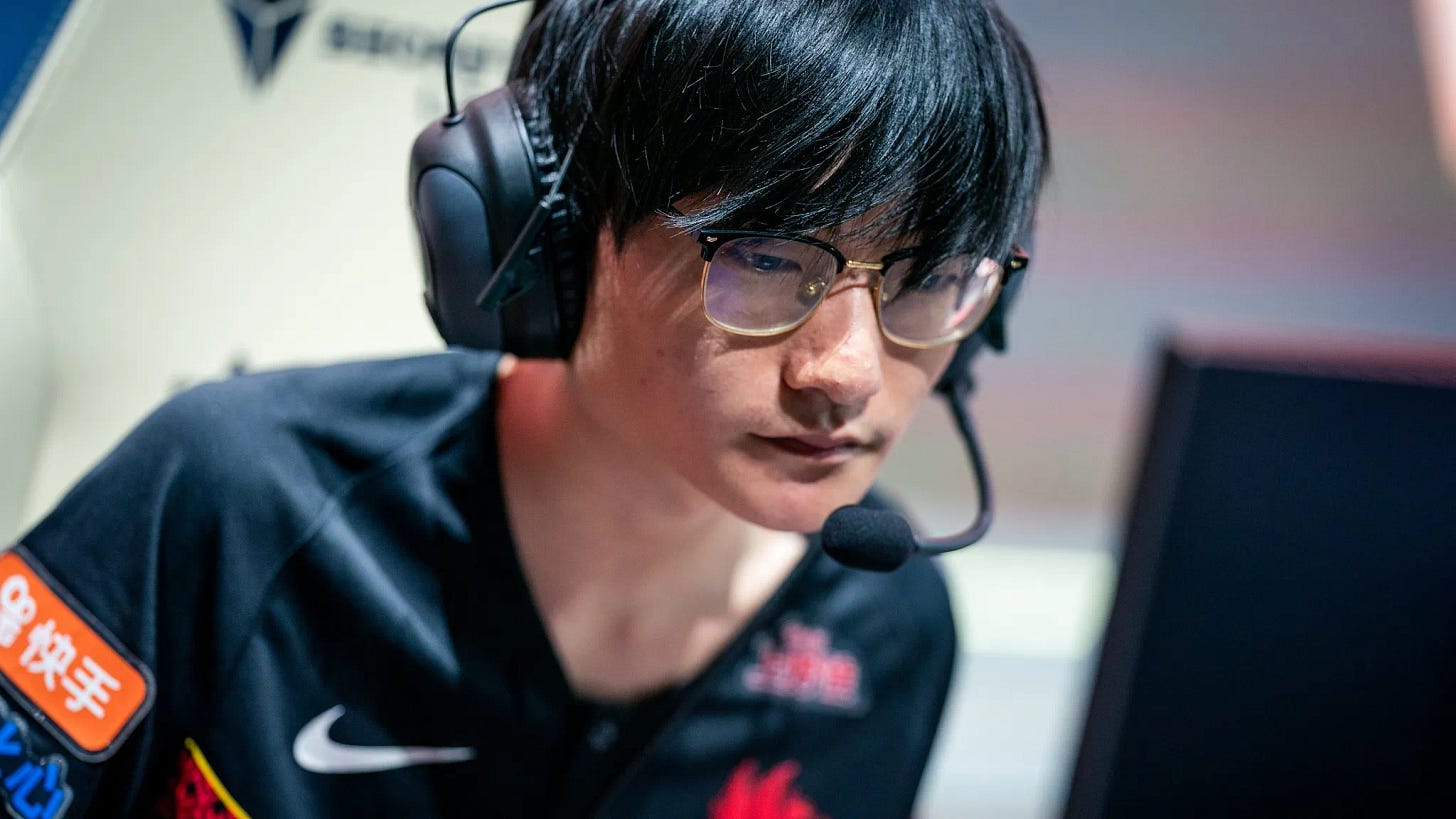The Heavy Burden of Success: Faker’s Breakdown and the 'Kpop-ification' of Esports Stars
The intense demands and cultural pressures in esports are pushing athletes to their mental and physical limits.
The world of esports has long celebrated the rise of its stars—players who, through sheer skill and dedication, have risen to the top of their games. Yet, behind the bright lights and roaring crowds, a darker story often goes untold: the immense pressure these athletes face, which can lead to serious mental and physical health issues. Recent incidents involving some of the biggest names in esports, including the legendary SKT1 player Faker, have brought these issues into sharp focus.
Faker: A Legend Under Siege
Faker, often hailed as the greatest League of Legends player of all time, recently made headlines for all the wrong reasons. After a crushing loss to Gen.G in the LCK, Faker was seen breaking down emotionally, slamming his head into a wall, and needing to be restrained by his teammates. This incident sparked widespread concern and debate within the esports community. While some rallied behind him with the hashtag #WeStandForFaker, others were less sympathetic, underscoring the polarized nature of fan culture in esports.
Faker’s breakdown is a stark reminder of the immense pressure placed on these players. As someone who has been at the top of the game for nearly a decade, Faker has faced relentless expectations, both from his fans and himself. This pressure has only been compounded by injuries and stress, making it clear that even legends are not immune to the mental toll of competitive gaming.
The Dark Side of Esports: Danny and Tian
Faker's story is not an isolated case. Riot Games recently concluded an investigation into the treatment of Evil Geniuses' player Danny, who reportedly faced severe mental and physical health issues during the 2022 playoffs. Allegations suggest that EG neglected Danny’s well-being, forcing him to continue playing despite his deteriorating condition. This incident, which led to an investigation in 2023, has sparked a broader discussion about player welfare in esports, highlighting the need for better support systems and protections for young athletes in high-pressure environments.
Recent developments have raised further concerns about the power dynamics at play within esports organizations. Nicole LaPointe Jameson, the CEO of Evil Geniuses, recently stepped down amid ongoing controversies surrounding the treatment of their League of Legends player, Danny. According to reports, Danny had expressed a desire not to compete during the 2022 playoffs due to severe mental and physical health concerns. However, after a meeting with LaPointe Jameson, Danny reportedly emerged with a sudden change of heart, agreeing to continue playing despite his earlier reservations. This incident has sparked discussions about the influence and pressure that management may exert on players, highlighting the need for greater transparency and ethical considerations in how esports organizations handle their athletes' well-being.
Similarly, FPX’s Tian took a break from competitive play in 2021 due to ongoing health issues related to the extreme demands of esports. His decision to step back from the game underscored the growing concern around player health and the toll that the esports lifestyle can take. Tian eventually returned to competitive play in 2022, but his initial break serves as a reminder of the physical and mental toll that prolonged exposure to high-stress environments can have on athletes.
The Cultural Context: Pressure in Eastern Esports and the K-Pop Parallel
The pressures faced by esports stars in Eastern cultures are particularly intense. The expectations placed on these players often mirror the extreme demands seen in other areas of popular culture, such as K-pop. Just as K-pop idols are expected to maintain perfect images and perform flawlessly under constant scrutiny, esports players are held to similarly high standards. This “K-popification” of esports, where image and performance are relentlessly optimized, has created an environment where the mental and physical well-being of players can be easily overlooked.
To understand the scale of this phenomenon, consider that the 2023 League of Legends World Championship drew a peak viewership of over 6.1 million, making it one of the most-watched esports events in history, according to Esports Charts. With millions of eyes on these players, the pressure to not only perform but to maintain a perfect public image is overwhelming, further amplifying the stress and mental toll on these athletes.
In the context of esports, this pressure is compounded by the gruelling schedules that players in Eastern teams often endure. The levels of commitment are staggering, with many players putting in 14-15 hour days, with minimal sleep. This relentless dedication is a significant factor in the dominance of Eastern players in RTS and MOBA-based games, but it comes at a steep cost. The nationalistic pride tied to being the best team adds another layer of pressure. For many players, losing is not just a personal failure; it feels like a betrayal of their team, fans, and even their country.
For instance, T1's jungler Oner reportedly faced pressure from T1 executives to take pictures of himself oiled up, a demand that highlights how image management has become a significant aspect of esports culture, especially in Eastern teams. This blending of competitive gaming with entertainment and image-building adds another layer of stress for players, who must navigate not only the demands of their sport but also the expectations of fans and sponsors.
The Path Forward: Addressing the Pressures in Esports
The recent incidents involving Faker, Danny, and Tian have sparked a necessary conversation about the need for better mental health support and ethical considerations in esports. While the competitive nature of the industry is unlikely to change, the way players are treated and supported must evolve. Organizations must prioritize the well-being of their athletes, ensuring they have the resources and support needed to cope with the pressures of professional gaming.
In conclusion, the breakdown of a legend like Faker serves as a wake-up call for the esports industry. The time has come to take a hard look at the pressures these players face and to make the necessary changes to support their health and well-being. As esports continues to grow, the industry must ensure that its stars can shine without being burned out by the intense demands placed upon them.

